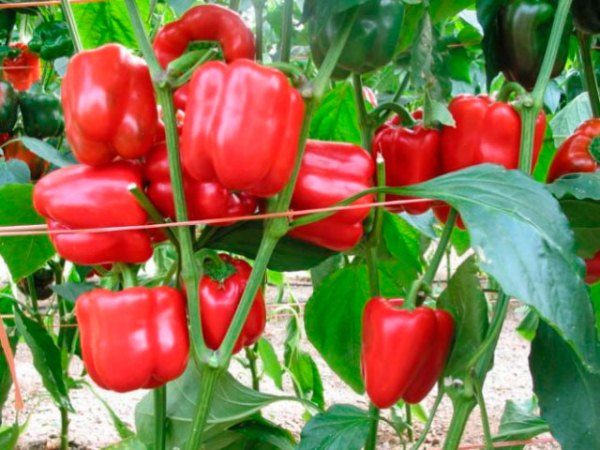
Pepper Hercules (Hercules) is one of the most common examples of domestic selection. It is created specifically for the climate of the middle strip. Characteristics and description of the variety made by gardeners who willingly share their experience in microblogging and on sites for growing vegetable crops, contain not only detailed descriptions, but also photos and reviews.
The opinion of those who planted this variety is distinguished by a positive tone and satisfaction from the results obtained during cultivation. The yield of any variety depends on its adaptability to certain climatic conditions. In this regard, domestic Hercules has all the necessary set of valuable qualities, which contributed to its widespread distribution. Mid-range vegetable farmers can safely adopt the successful creation of Russian selection.
Fans of gardening, and those who are professionally engaged in growing vegetables, call Hercules (Hercules) pepper one of the best varieties of bell pepper, grown for a difficult and relatively cold climate. The characteristics and description of the variety, voiced by professionals, suggest the relative simplicity of cultivation and high productivity, which popular foreign favorites can not always compete with. In the photo you can see large-sized pepper fruits, which amaze with the intensity of color and appearance.
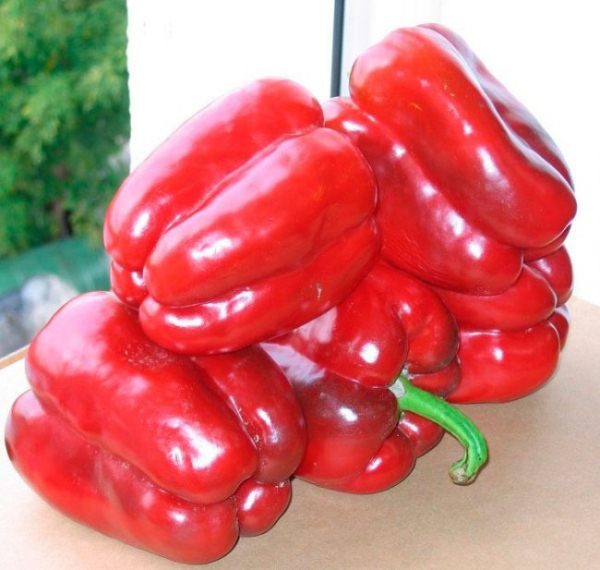
The reviews of those who planted large-fruited meaty vegetables show that he did not cause them unnecessary trouble, gave an excellent harvest and pleased with the taste. People who sell vegetable seeds say this is one of the most sought after and bought types of bell pepper.
Grade description
Hercules is a mid-early variety and ripens in 70-75 days. According to the description of those who have already grown this variety, with proper and qualified care, it is able to produce 1.5–2 kg from a bush in open ground and up to 3.5 in a greenhouse. Its industrial productivity, according to gardeners, from 30-40 to 57 tons per hectare of field planting. The cuboid fruits of green color (in a state of technical ripeness) or intense red (at the stage of final ripening) can reach:
- lengths up to 12 cm;
- diameter - up to 10.5;
- weight from 180-200 to 220-250 g (under optimal conditions and 300-350 g);
- wall thickness - 5-7 mm, (but there are specimens with wall thickness up to 1 cm);
- excellent, bright taste of real bell pepper.
Fans of this vegetable culture diverge somewhat in the descriptions of the taste characteristics of Hercules pepper. One seems to have a slight bitterness in green fruits, which manifests itself in a more intense harmony with other multifaceted features. Others are convinced that it has absolutely no taste due to its inherent taste nuances, but does not have the bitterness characteristic of other varieties of bell pepper. According to the second group of connoisseurs, it is distinguished by specific taste characteristics, due to the thickness of its pulp, which is simultaneously elastic, soft and juicy.
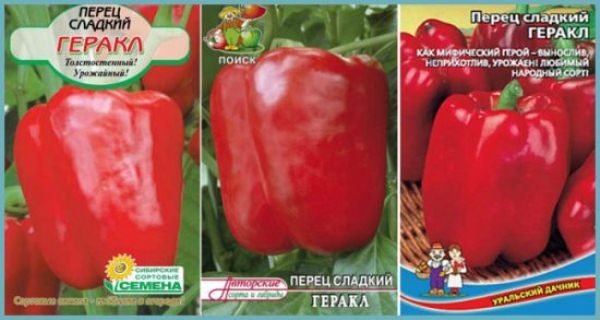
Reviews of lovers of country vegetable growing indicate the versatility of Hercules. It can be prepared in any variant of culinary heat treatment - bake, cook, stew, make caviar and use in combination with other products. Its taste is especially vivid in numerous salads. But it can also be frozen for the winter, rolled up as a whole, as a semi-finished product, canned in vegetable salads and pickled, as well as fermented for the winter.
Reddened fruits are usually used in food, since in this state the taste is felt more intensively, and the wall thickness and juice perfectly complement any salad. Subject to certain temperature conditions and an intact peel, it can be kept fresh for a fairly long time. The variety shows excellent keeping quality and enables long-distance transportation. If you take the crop in a state of technical ripeness, Hercules will survive even longer and partially ripen on the way to the trading counter.
Pepper bush and care
The variety prefers fertile and light soils, on which it shows high productivity. Difficulties after planting can occur in young plants, if before that, pumpkin, greens, cabbage or legumes were grown on the site. With the other predecessors, pepper bushes do not have any difficulties. The bush grows usually compact, not more than half a meter, with dark green leaves of medium size. With the introduction of proper top dressing, a fairly significant number of fruits ripen on it, so a plant's garter is usually made. It is recommended to plant it in a 40x60 way.
In places where the spring is relatively warm, it is planted in open ground, but in the middle zone, it is considered optimal to plant the variety through seedlings.
60-70 days before the intended planting, the seeds begin to grow in the greenhouse, doing all the necessary manipulations with them. Usually this occurs in the middle-end of February, and in a warmer climate, it can be planted at the beginning of the month, while maintaining the optimum temperature for germination of the culture + 26-28 C.
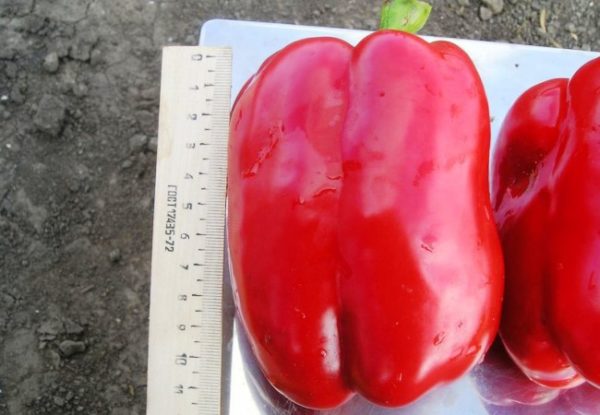
The variety does not like either particularly shaded places, or those where the active sun is. It is sensitive to drafts and transplants, and in the greenhouse it can stop growing for a short time after transplanting small seedlings into separate containers. During this period, you can use a simple growth stimulator, with which the plant is sprayed from the spray. Landing in the open ground for further growth in the open air or under the film, is made in May. The need for shelter is determined by climatic conditions and the nature of the course of a particular spring.
Planting is usually done shallow, because pepper, unlike a tomato, does not produce layering roots. It is recommended to water the plant twice a day until there is a strong sun and spend 2-3 fertilizing during the growing season. Complex mineral fertilizers are necessary, growth stimulants and other activators are used only in case of special problems.
Fact: In the North Caucasus region, when grown in open ground, pepper reacted to fertilizing with mineral fertilizers up to 75-90 cm in height, and increased yield to 2.5-3 kg from the bush.
Necessary conditions for a good harvest
Pepper Hercules (Hercules), which is classified as medium-early and productive varieties, can not only provide the family with bell pepper for the winter and replenish its diet in the summer, but can also be grown for sale, bringing significant profit. To get a good harvest, you must observe several important conditions:
- timely planting of seeds for seedlings;
- not earlier transplanting seedlings in open ground (the ground should already warm up from the last frost);
- protection in the cold climate of bushes from night cold;
- not a dark, but not a sunny place with no drafts;
- obligatory 2-3 single top dressing with combined mineral fertilizers;
- loosening (or even better - mulching) of the soil at the roots of the plant;
- constant and timely watering;
- installation of props and a small garter plant;
- removal of weeds from the surrounding area.
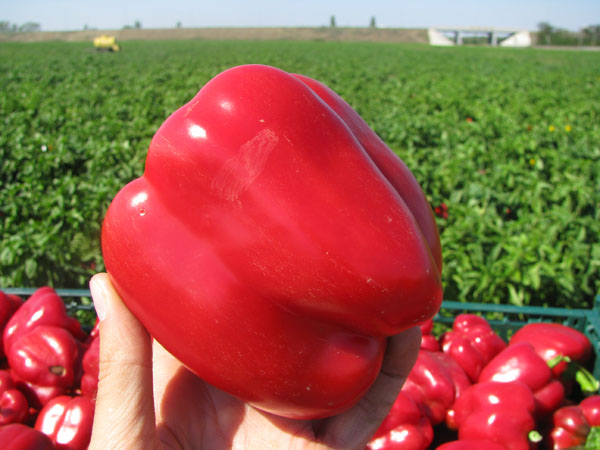
Hercules is resistant to common pests, but to exclude further reproduction, at the first appearance of any of them, the bush should be treated with an appropriate agent. Fruiting remains intense until mid-September, but with mild and warm autumn it can last even longer.
https://youtu.be/xFaJiiylk_A
The beneficial properties of bell pepper are widely known. The capsalacin alkaloid contained in it not only gives the vegetables an original taste, but also stimulates gastric secretion and improves appetite. A rich set of vitamins and minerals protects the human body from many pathologies, strengthens joints and blood vessels, and even prevents baldness. You can make cosmetic masks from the Hercules variety, because its flesh is thick and juicy.

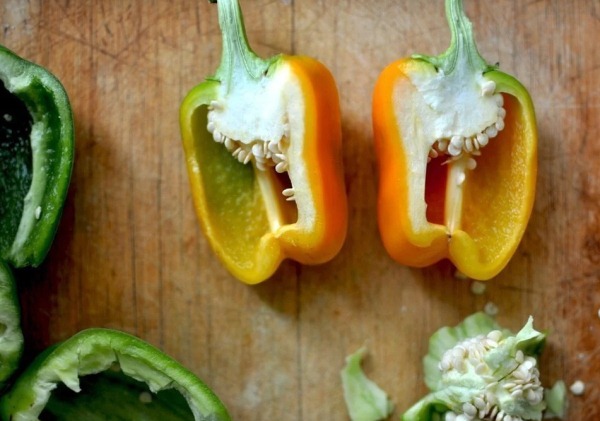
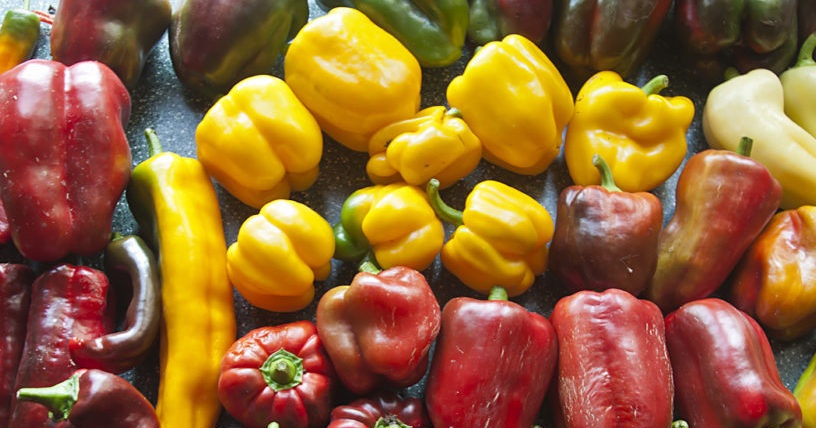
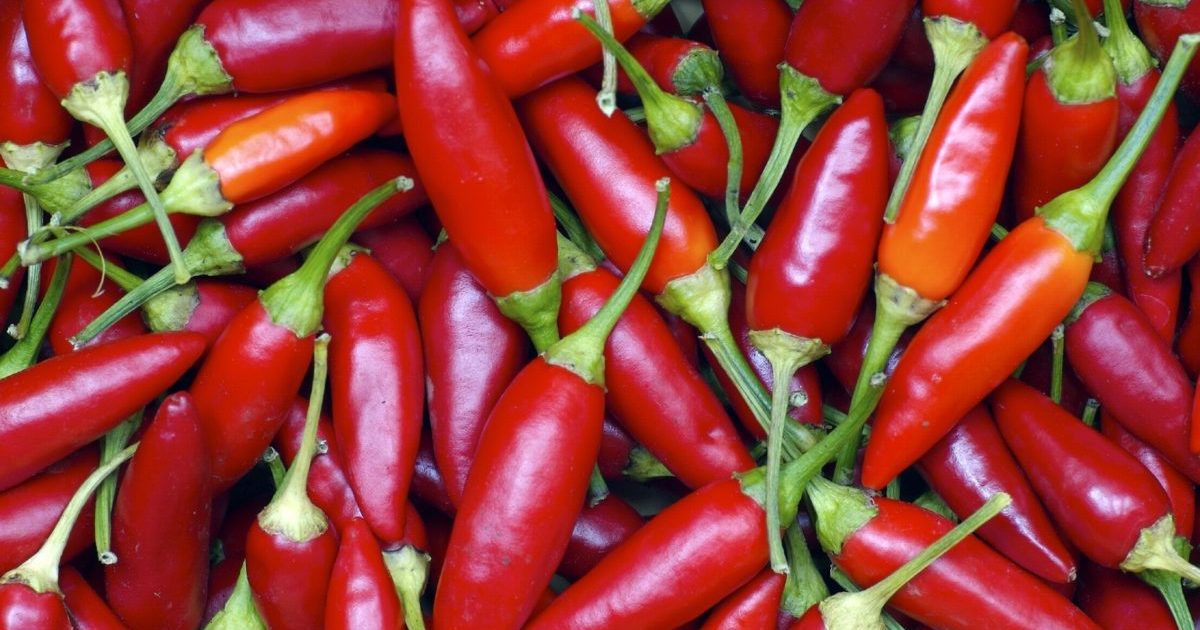
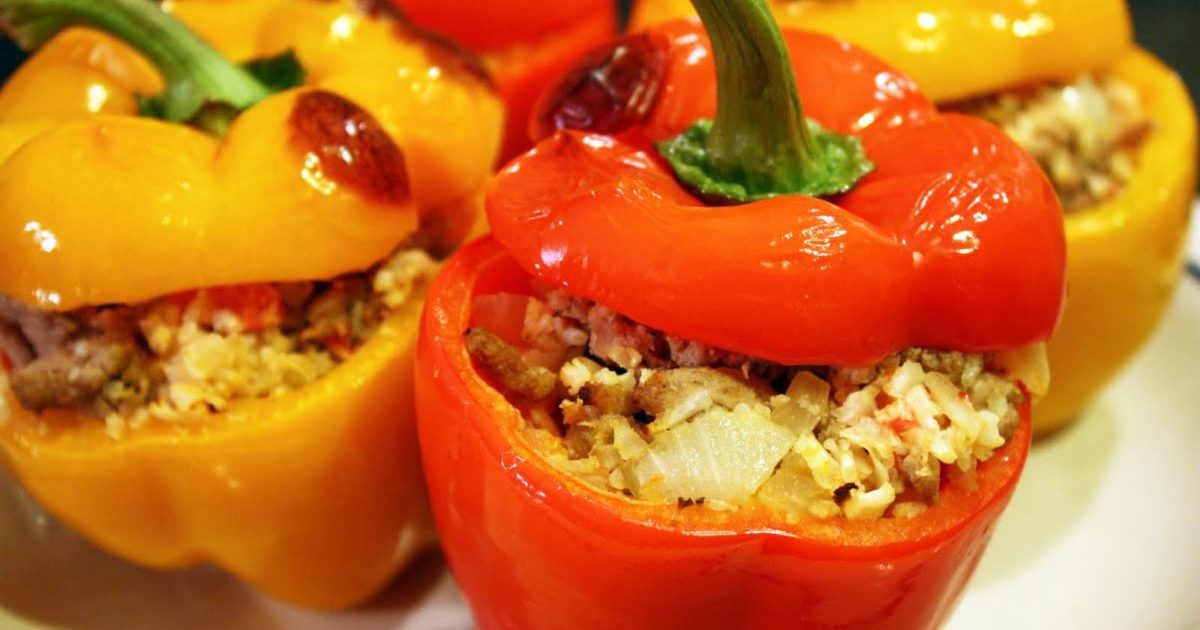 Calorie pepper stuffed with meat and rice - BZHU per 100 grams
Calorie pepper stuffed with meat and rice - BZHU per 100 grams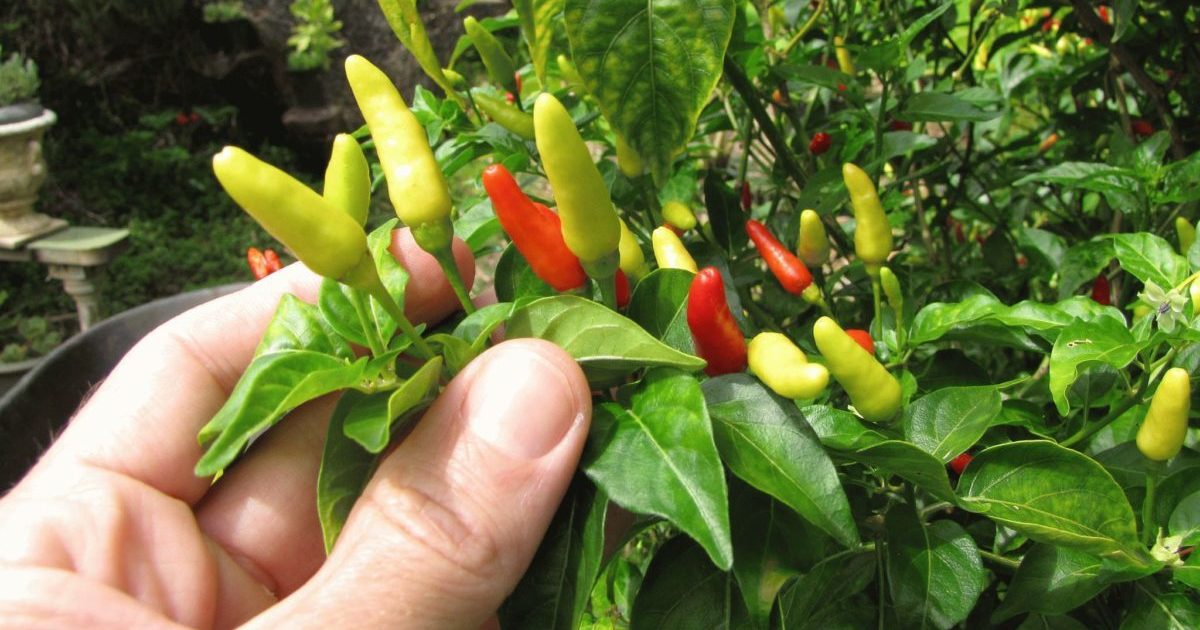 Gorky pepper - the best varieties for open ground
Gorky pepper - the best varieties for open ground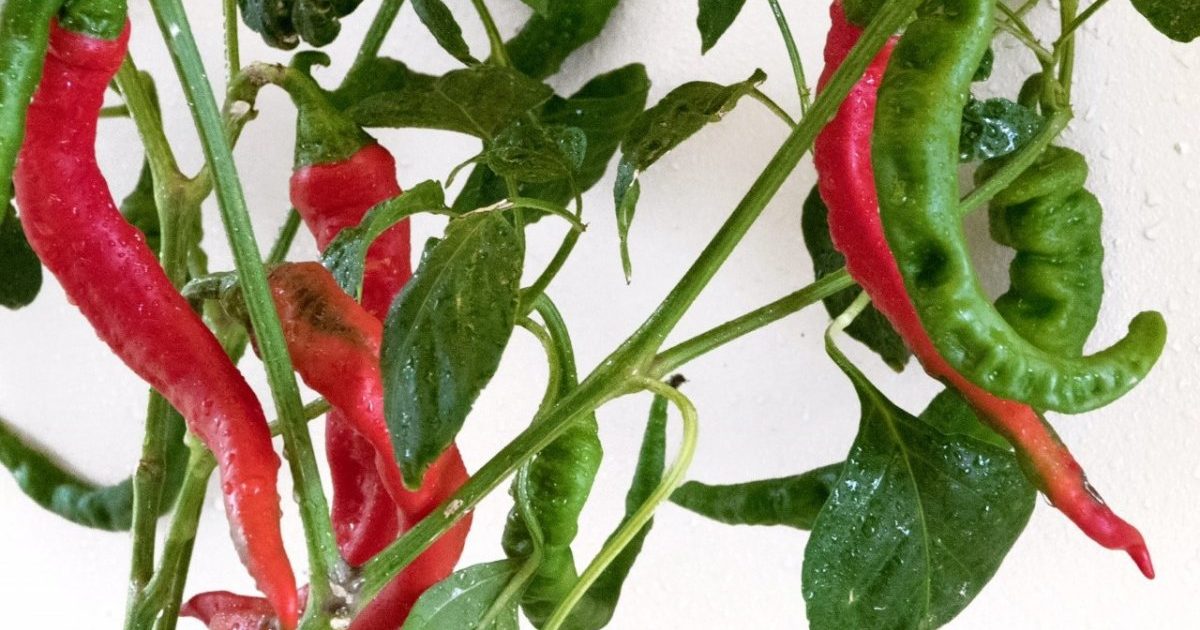 Hot pepper seeds - the best varieties for open ground and reviews
Hot pepper seeds - the best varieties for open ground and reviews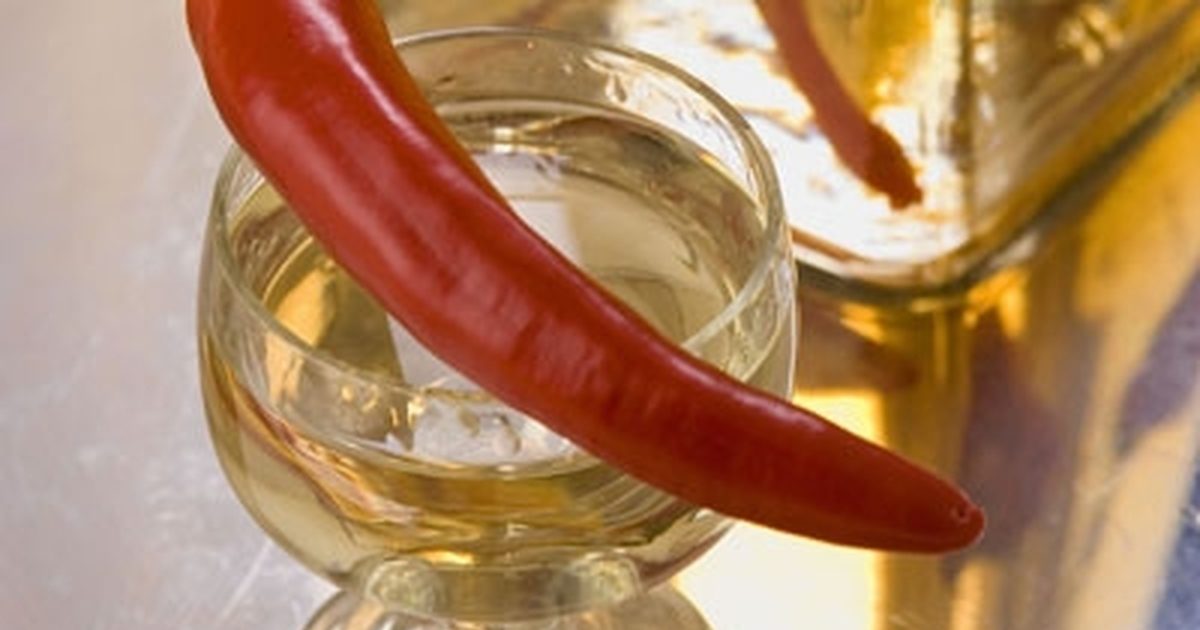 Capsicum tincture for hair - how to use and reviews
Capsicum tincture for hair - how to use and reviews